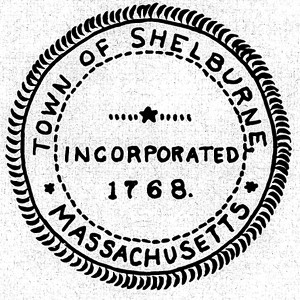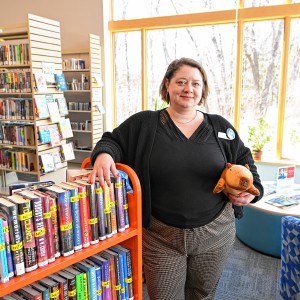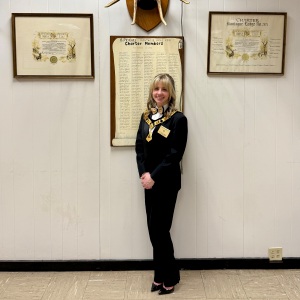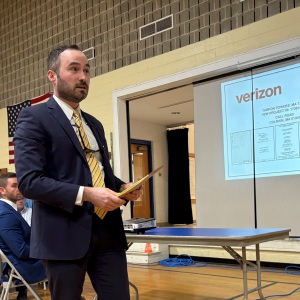‘Trouble in Toyland’: Unsafe toys flood US market due to loophole in customs rules

Consumer advocates are warning parents about the dangers posed by toys coming from overseas.
| Published: 12-08-2024 12:01 PM |
Ahead of the holiday season, consumer advocates are warning parents about the dangers posed by toys coming from overseas.
International sellers are using “legal loopholes” to ship unsafe toys into the U.S., bypassing inspections and safety standards before deliveries, according to the Massachusetts Public Interest Research Group Education Fund.
Teresa Murray, author of “Trouble in Toyland,” an annual report highlighting safety hazards in toys, advises consumers to be aware of the origins of the toys they purchase.
“We have the best chance of keeping our children safe if we watch where we’re buying products from and realize that direct-to-consumer items — while inexpensive and easy to find — put our families at risk,” Murray wrote in this year’s report.
There are more than 150,000 toy-related deaths and injuries treated in emergency rooms across the country among children ages 14 and under every year, according to the U.S. Consumer Product Safety Commission.
The MassPIRG report found overseas sellers slip through regulations by mailing the toys directly to consumers or claiming the containers of products that arrive at the border are of such low value that paperwork or an inspection aren’t warranted.
The report found that in the last decade the number of these kinds of exempt shipments surged from 140 million per year to 1 billion per year, averaging 3 million shipments per day.
This problem has grown in recent years due to international sellers’ aggressive marketing, incomplete domestic laws and the increase of online shopping from the pandemic, according to the report.
Article continues after...
Yesterday's Most Read Articles
 Local ‘Hands Off!’ standouts planned as part of national effort
Local ‘Hands Off!’ standouts planned as part of national effort
 Shelburne Selectboard determines police detective will retain job
Shelburne Selectboard determines police detective will retain job
 Local libraries react to state funding cuts, federal administrative leave
Local libraries react to state funding cuts, federal administrative leave
 Incandescent Brewing now open in Bernardston
Incandescent Brewing now open in Bernardston
 Cooking up an expansion: Cocina Lupita eyes second location in Turners Falls
Cooking up an expansion: Cocina Lupita eyes second location in Turners Falls
 ‘She is our future’: Thirty years after permitting women to join, Montague Elks is almost entirely women-led
‘She is our future’: Thirty years after permitting women to join, Montague Elks is almost entirely women-led
Deirdre Cummings, legislative director at MassPIRG, said these problems need to be “tightened up.”
“It has allowed the growth of these cheap toys coming into the marketplace,” Cummings said. “All that combined has led to an area of safety and consumer protection that really needs to be opened up.”
Cummings said legislators are working at the national level to address this issue.
Republican Sen. Mike Braun of Indiana and Democratic Sen. Tammy Baldwin of Wisconsin introduced the bipartisan bill, Ensure Accountability in the De Minimis Act, in April to increase security for de minimis, or low valued package, entries from across the border.
“We have a responsibility to ensure packages that are coming into our country are not harming Americans, but right now we are falling short,” Baldwin wrote in a statement.
Nancy Cowles, executive director of Kids in Danger, told the U.S. PIRG Education Fund that families are unaware that these products are not being tested. She argues that toys that don’t have safety compliance documentation are “problematic from the start.”
“There’s no safety testing on these products,” Cowles said. “It’s illegal.”
MassPIRG keeps an updated list on its website with tips for families and gift-givers to help avoid unsafe and untested toys.
Some of the tips include reviewing the brand’s website to find authorized retailers, looking for non-toxic labels on the toy and considering whether a child is responsible enough to keep the toy out of reach of any younger children.
This year’s report also focused on concerns around water beads, gel-like spheres that expand in water and look like candy. They are often used as sensory toys for play, offering a tactile, squishy experience. Consumer advocates have warned about water beads for more than two years because once ingested, it can lead to a blocked airway, intestinal or bowel blockage, lung or ear damage, and other life-altering injuries, according to the report.
The authors also found smart toys, like Fuzzible Friends, invade children’s privacy and consumers are still buying toys that are recalled, even though it is illegal to sell them.
The “Trouble in Toyland” report focuses on a different issue every year, Cummings said.
“We think this time of year, we help deliver meaningful information to those who are looking to purchase toys,” she said. “So just by informing the public, [we] can help protect the safety of kids.”
Previous reports have focused on how easy it is to buy recalled toys, counterfeit toys and choking hazard toys.
This year’s report marked the 39th annual “Trouble in Toyland,” and since its initial one, toys have gotten safer.
Cummings said releasing the report has helped remove unsafe toys from the market and flag safety hazards to the Consumer Product Safety Commission to take action.
“The fact that the industry knows that this is coming out every year, that also creates an incentive to make sure that the toys that they have that they’re putting out are safe,” she explained.
Despite these improvements, Cummings still encourages gift-givers to stay diligent.
“There’s 3 billion toys sold in the U.S. every year, that’s a lot, and for the most part, most of them are safe, but unfortunately every year kids are being treated in ERs as a result of these incidents related to unsafe toys,” she said. “Even though things have gotten better, we still need to engage.”
Sydney Topf writes for the Greenfield Recorder through the Boston University Statehouse Program.






 New panel to review senior housing proposals in Deerfield
New panel to review senior housing proposals in Deerfield Shutesbury reviewing how to improve safety on Lake Wyola in wake of accident last summer
Shutesbury reviewing how to improve safety on Lake Wyola in wake of accident last summer Colrain zoning board approves variance for Call Road cell tower
Colrain zoning board approves variance for Call Road cell tower
